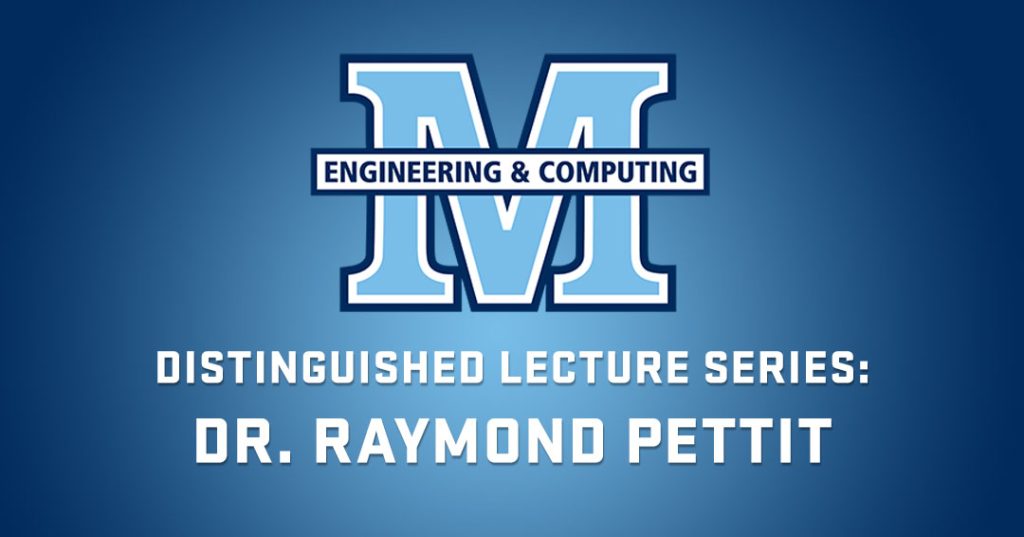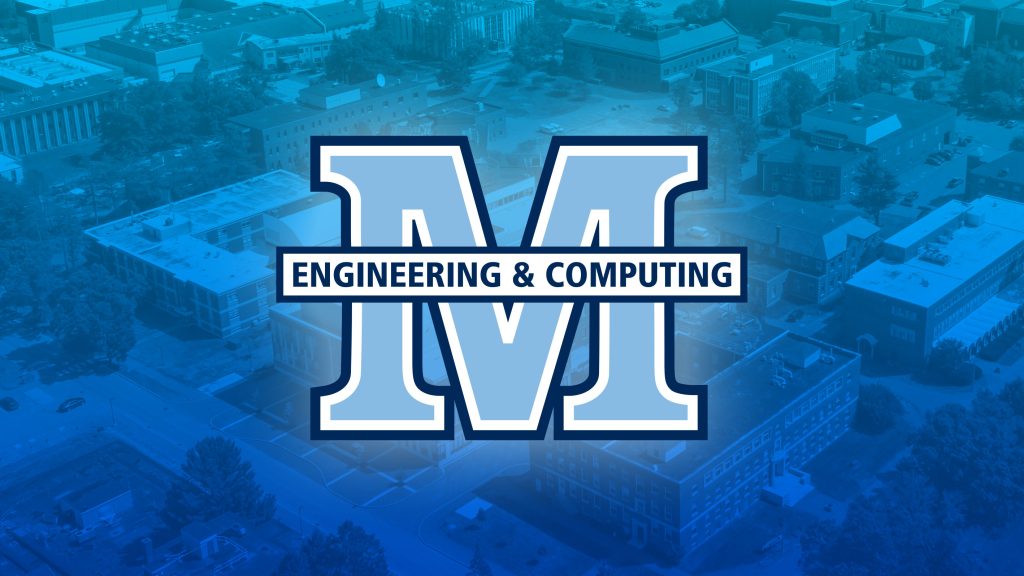Graduate Certificates
School of Computer & Information Science
Graduate certificates at the University of Maine can be earned as standalone credentials or alongside a graduate degree, requiring separate applications for each. Certificates, including Geographic Information Systems, Information Systems, Computing for Educators, and Data Science and Engineering, appear on official transcripts upon completion. No prior computing experience is needed, though those with such backgrounds have greater elective flexibility. Certificates can be pursued on campus or online with identical curricula, and most required courses are available in both formats. A program of study must be filed before completing a certificate. Apply now to get started!
graduate coordinator
Silvia Nittel
Key Admissions Deadlines
- Rolling Admissions
- No GRE/GMAT Requirements
Certificates Offered
Digital Curation graduate certificate requirements
For the official catalog requirements, consult the Graduate Catalog > choose year in pull down window > select Graduate Programs, Certificates and Specializations > select Digital Curation (Certificate)
In short, the the certificate requires 12 credits acquired through four 3-credit required courses.
The four required courses include:
DIG 500 Introduction to Digital Curation
DIG 510 Metadata
DIG 540 Digital Collections and Exhibitions
DIG 550 Digital Preservation
Numerous additional germane elective distance courses are suggested below and are regularly available.
Digital Curation Program Description and Background
See background, news and details about the Digital Curation graduate certificate program.
See also the description of the program and the application process provided at UMaine Online,
Digital Curation Graduate Courses
DIG 500 – Introduction to Digital Curation
As the introductory course to the Digital Curation program, this class surveys the variety of digital artifacts that we consciously or unconsciously create and consume today, with a focus on how to collect and manage digitized and born-digital artifacts and their related data. Students lean technical skills such as how to digitize analog documents, photographs, and videos, as well as curatorial knowledge such as how selection criteria vary as a function of type of institution (archives v. libraries v. museum) and field (art v. archeology). The course also reviews methods for ensuring the ongoing integrity of the artifact and laws governing the acquisition and use of intellectual property, such as how copyright extends to images, editions, and future versions of a work.
Credits: 3
DIG 510 – Metadata Systems
This course covers digital formats for describing the contents and contexts of artifacts with an emphasis on their use in libraries, archives, and online repositories. This includes a discussion on the need for and use of metadata in a variety of digital contexts, exposure to specific metadata standards used in a number of fields, and demonstrations of how these metadata are expressed in several output formats.
Prerequisites & Notes
DIG 500 strongly recommended
Credits: 3
DIG 540 – Digital Collections & Exhibitions
This course covers the technical means and social consequences of assembling and sharing cultural data and artifacts. Topics include the fundamentals of relational databases; a survey of collection management packages, both proprietary and open-source; and an introduction to the special concerns and programming concepts necessary to customize off-the-shelf database solutions for domain and content appropriateness.
Prerequisites & Notes
DIG 500 and 510 strongly recommended
Credits: 3
DIG 550 – Digital Preservation
This course acquaints students with the challenges of, and best practices for, preserving digital artifacts. Topics include a survey of the (sometimes bewildering) array of formats for digital media, along with their vulnerabilities and half-lives; analysis of various preservation strategies (storage, migration, emulation, reinterpretation); institutional, legal, and practical impediments to preservation; preservation standards and resources for digital media (Media Matters, Variable Media Questionnaire).
Prerequisites & Notes
DIG 500, 510, and 540 strongly recommended
Credits: 3
DIG 580 – Digital Curation Internship
Digital Curation Internships provide valuable experiential learning in an emerging and changing field that provides complex challenges. An internship experience is essential to the certificate program, providing students with current and vital knowledge and skills they will need in the workplace. Internships provide students opportunities to reinforce their academic learning, and provide opportunities to establish professional contacts. Because our digital curation curriculum is online, and because our students will be located in many different places, we offer two types of internships: place-based and virtual.
Prerequisites & Notes
Permission.
Credits: 1-3
Elective Courses
Additional elective complementary courses are suggested at UMaine Online
Program Coordinator
Jon Ippolito
A. Curriculum Requirements and Admission (UMaineOnline Link)
For the official requirements, consult the Graduate Catalog (select current year catalog > Graduate Programs, Certificates and Specializations > Geographic Information Systems (Certificate))
Although the online graduate catalog is the authoritative source for information, the materials are listed as well below for your convenience.
1. Graduate Certificate in GIS Requirements
The Graduate Certificate in Geographic Information Systems requires completion of a minimum of 15 credits of coursework. The 15 credits of coursework must include the following four core courses:
• SIE 507 – Information Systems Programming
• SIE 509 – Introduction to Geographic Information Systems
• SIE 557 – Database System Applications
• SIE 510 – GIS Applications or SIE 512 – Spatial Analysis
The remaining 3 credits may be selected from among the following set of courses:
• SIE 515 – Human Computer Interaction
• SIE 525 – Information Systems Law
• SIE 550 – Design of Information Systems
• SIE 505 – Formal Foundations for Information Science
• SIE 555 – Spatial Database Systems
• SIE 558 – Real-Time Sensor Data Streams
Only courses in which the student obtains a grade of B or higher count toward the completion of the Geographic Information Systems Graduate Certificate.
2. GIS Graduate Certificate Admission
Students to be admitted into the Geographic Information Systems Certificate must hold an undergraduate degree and have a cumulative undergraduate GPA of 3.0 or higher. Candidates must submit a transcript of their undergraduate degree, essay, and optionally one reference letter. Students can apply to transfer up to 3 credits of graduate course work (that has not counted toward another degree) into the GIS Graduate Certificate, except for the three core courses, which must be taken at the University of Maine. While a course may be waived due to substantial repetition of course content, the total of 15 credits in course work must still be acquired. The GIS Certificate Coordinator must approve transfer credits after assessing whether they are appropriate as well as assess proposed waivers and substitution courses on the program of study. Apply at Apply Now.
3. Continuation of GIS Certificate to MS in Spatial Information Science and Engineering or MS in Spatial Informatics
Before or upon completion of the GIS Graduate Certificate, students may apply for the MS Spatial Information Science and Engineering degree [Project Option] or the MS Spatial Informatics degree (online only). Students may transfer from the GIS Graduate Certificate only those SIE courses in which they received a grade of B or higher. If aspiring to both credentials, it is typically less work to apply for both graduate programs at the same time when initially applying to grad school.
4. Additional Information
Curriculum for MS Spatial Information Science and Engineering [Project Option] and MS Spatial Informatics
Course Descriptions: See http://gradcatalog.umaine.edu/ > Graduate Courses or see SIE course descriptions
Program of Study Forms: Find at Forms and Documents
B. Model Curriculum: MS Information Systems (MSIS) incorporating Grad Certificate in GIS
A typical Program of Study for the MSIS that also meets the requirements for the Graduate Certificate in GIS would include the following courses:
Core Requirements for MS Information Systems
SIE 507 – Information Systems Programming
SIE 515 – Human Computer Interaction
SIE 525 – Information Systems Law
SIE 550 – Design of Information Systems
SIE 557 – Database System Applications
Core Requirements for GIS Grad Certificate
SIE 509 – Introduction to Geographic Information Systems
SIE 510 – GIS Applications or SIE 512 Spatial Analysis
Further Elective Requirements for MSIS
– three further elective courses listed at MSIS Curriculum
C. Model Curriculum: MS Spatial Informatics (MSSI) incorporating Grad Certificate in GIS
A typical Program of Study for the MSSI that also meets the requirements for the Graduate Certificate in GIS would include the following courses:
Core Requirements for MS Spatial Informatics
SIE 507 – Information Systems Programming
SIE 509 – Introduction to Geographic Information Systems
SIE 510 – GIS Applications or SIE 512 – Spatial Analysis
SIE 550 – Design of Information Systems
SIE 557 – Database System Applications
SIE 505 – Formal Foundations for Information Science or SIE 580 Ontology Engineering Theory and Practice
Core Requirements for GIS Grad Certificate
covered
Further Elective Requirements for MS Spatial Informatics
– four of any further elective courses listed at SIE Graduate Courses as approved on your Program of Study
such as
SIE 555 – Spatial Database Systems
SIE 558 – Real-Time Sensor Data Streams
SIE 559 – Geosenor Networks
Program Coordinator
Silvia Nittel
A. Curriculum Requirements (UMaineOnline Link)
For the official requirements, consult the Graduate Catalog (select current year catalog > Graduate Programs, Certificates and Specializations > Information Systems (Certificate))
Although the online graduate catalog is the authoritative source for information, the materials are listed as well below for your convenience.
1. Graduate Certificate in Information System Requirements
The Graduate Certificate in Information Systems requires completion of a minimum of 15 credits of coursework. The fifteen credits of coursework must includes the following five core courses:
• SIE 507 – Information Systems Programming
• SIE 515 – Human Computer Interaction
• SIE 525 – Information Systems Law
• SIE 550 – Design of Information Systems
• SIE 557 – Database System Applications
Only courses in which the student obtains a grade of B or higher count toward the completion of the Information Systems Graduate Certificate.
2. Information System Graduate Certificate Admission
Students to be admitted into the Information Systems Certificate must hold an undergraduate degree and have a cumulative undergraduate GPA of 3.0 or higher. Candidates must submit a transcript of their undergraduate degree and an essay. Students can apply to transfer up to 3 credits of graduate course work (that has not counted toward another degree) into the IS Graduate Certificate. While a course may be waived due to substantial repetition of course content, the total of 15 credits in course work must still be acquired. The IS Certificate Graduate Coordinator must approve transfer credits after assessing whether they are appropriate as well as assess proposed waivers and substitution courses on the program of study. Apply at Apply Now.
3. Continuation of IS Certificate to MS. in Information Systems or MS in Spatial Informatics
Before or upon completion of the IS Graduate Certificate, students may apply for the MS Information Systems (all courses are both on campus and online) or the MS Spatial Informatics degree (online only). Students may transfer from the IS Graduate Certificate only those courses in which they received a grade of B or higher. If aspiring to both credentials, it is typically less work to apply for both graduate programs at the same time when initially applying to grad school.
4. Additional Information
MSIS Curriculum
Course Descriptions: See http://gradcatalog.umaine.edu/ > Graduate Courses or see SIE course descriptions
Program of Study Forms: Find at Forms and Documents
B. Model Curriculum: MS Spatial Informatics incorporating Grad Certificate in Information Systems
Because it requires only the five required courses contained within the MS Spatial Informatics program, the Graduate Certificate in Information Systems is automatically fulfilled by acquiring the MS Spatial Informatics assuming a graduate certificate application was submitted and approved in advance of meeting the grad certificate requirements.
C. Model Curriculum: MS Information Systems incorporating Grad Certificate in Information Systems
Because it requires only the five required courses contained within the MS Information Systems program, the Graduate Certificate in Information Systems is automatically fulfilled by acquiring the MS Information Systems assuming a graduate certificate application was submitted and approved in advance of meeting the grad certificate requirements.
Program Coordinator
Silvia Nittel
The Graduate Certificate in Computing for Educators is for those desiring to teach computational thinking, computer coding, and computer science skills problem-solving courses primarily in grades 9–12. The 15-credit certificate is available completely online and on-campus. Most courses are taught with simultaneous on-campus and online sections. The online section is typically asynchronous, but distance students may attend live online at their choosing.
The certificate, designed to educate teachers with little to no or moderate current computer science and programming skills, prepares students with foundational coding and database knowledge enabling them to teach dedicated computer coding and computer science problem-solving courses.
Graduate students completing the certificate acquire the requisite knowledge and skills preparing them to teach both of the Computer Science Advanced Placement (AP) courses recommended to be taught in high schools.
While this graduate certificate program has been designed specifically for teachers and other educators, the individual courses within it are germane for students across many disciplines. The courses strive to serve the substantive content computing needs of graduate students in many domains.
IV. Graduate Certificate in Computing for Educators
A. Curriculum Requirements and Admission (UMaineOnline Link)
For the official requirements, consult the Graduate Catalog (select current year catalog > Graduate Programs, Certificates and Specializations > Computing for Educators (Certificate))
Note that while this graduate certificate program has been designed specifically for teachers and other educators, the individual courses within it are germane for students across many disciplines. The courses strive to serve the substantive content computing needs of graduate students in many domains.
Although the online graduate catalog is the authoritative source for information, the materials are listed as well below for your convenience.
1. Graduate Certificate in CFE Requirements
The Graduate Certificate in Computing for Educators requires completion of a minimum of 15 credits of coursework. The fifteen credits of coursework must include:
the following three core courses:
• SIE 504 The Beauty and Joy of Computing (typically summer)
• SIE 507 Information Systems Programming (typically fall)
• SIE 508 Object Oriented Programming (typically spring)
one course from among the following courses:
• SIE 509 Principles of Geographic Information Systems
• SIE 516 Interactive Technologies for Solving Real-World Problems
• SIE 557 Database Applications
• SIE 558 Real Time Sensor Databases
• COS 465/565 Data Visualization
• COS 470/570 Introduction to Artificial Intelligence
one course from among the following pre-approved electives:
• Any previously listed course above not yet taken
• SIE 550 Design of Information Systems
• SIE 505 Formal Foundations for Information Science
• SIE 510 Geographic Information Systems Applications
• SIE 512 Spatial Analysis
• SIE 515 Human Computer Interaction
• SIE 517 Spatial Interaction Design
• Any other 500 level SIE course
• EDT 520 Digital Age Teaching and Learning Methods
• EDT 571 Methods of Integrating Inclusive Computational Thinking
• Any other 400 or 500 level COS course
Only courses in which the student obtains a grade of B or higher count toward the completion of the Computing for Educators Graduate Certificate.
2. Typical Course Progressions for Graduate Certificate in Computing for Educators
The following are illustrative only and many other course elective options exist as well as taking multiple courses per semester.
Fall Beginning: Fall: SIE 507, Spring: SIE 508, Summer: SIE 504, Fall: SIE 509, Spring: SIE 510
Spring Beginning: Spring: SIE 517, SIE 525, or UMA 400 level Python Course, Summer: SIE 504, Fall: SIE 507, Spring: SIE 508 or elective, Summer or Fall: SIE 508 or elective
3. Computing for Educators Graduate Certificate Admission
Students to be admitted into the Computing for Educators Graduate Certificate must hold an undergraduate degree and have a cumulative undergraduate GPA of 3.0 or higher. Candidates must submit a transcript of their undergraduate degree, essay, and optionally one reference letter. Students can apply to transfer up to 3 credits of graduate course work (that has not counted toward another degree) into the Computing for Educators Graduate Certificate. While a course may be waived to avoid substantial repetition of course material, the total of 15 credits in course work must still be acquired. The Graduate Coordinator must approve transfer credits after assessing whether they are appropriate and will as well assess proposed waivers and substitution courses on the program of study. Apply at Apply Now.
4. Continuation of Computing for Educators Graduate Certificate to M.S. in Information Systems or Alternative M.S.
Before or upon completion of the Computing for Educators Graduate Certificate, students may apply for the MS Information Systems (MSIS) degree. Students may transfer from the Computing for Educators Graduate Certificate only those courses in which they received a grade of B or higher. If aspiring to both credentials, it is typically less work to apply for both graduate programs at the same time when initially applying to grad school. Alternatively the successful candidate might apply the graduate certificate credits in pursuit of a MS Data Science, MS Spatial Informatics, or MS Spatial Information Science and Engineering [Project Option] degree.
4. Additional Information
Curriculum for MS Information Systems
Curriculum for MS Spatial Information Science and Engineering [Project Option] and MS Spatial Informatics
Course Descriptions: See http://gradcatalog.umaine.edu/ > Graduate Courses or see SIE course descriptions
Program of Study Forms: Find at Forms and Documents
B. Model Curriculum: MS Information Systems (MSIS) incorporating Grad Certificate in Computing for Educators
A typical Program of Study for the MSIS (ten courses) that also meets the requirements for the Graduate Certificate in Computing for Educators would include the following courses:
Core Requirements for MS Information Systems
- SIE 507 – Information Systems Programming
- SIE 515 – Human Computer Interaction
- SIE 525 – Information Systems Law
- SIE 550 – Design of Information Systems
- SIE 557 – Database System Applications
- Core Requirements for Computing for Educators Grad Certificate
- SIE 504 The Beauty and Joy of Computing
- SIE 508 Object Oriented Programming
- Restricted Choice from Computing for Educators – Choose one from among:
- SIE 509 Principles of Geographic Information Systems
- SIE 558 Real-Time Sensor Data Streams
- COS 465/565 Data Visualization
- COS 470/570 Introduction to Artificial Intelligence
Further Elective Choices from Computing for Educators Requirements – Electives already met in first category above
Further Elective Choices from MSIS Requirements – Choose any two further elective courses listed at MSIS Curriculum as approved for your Program of Study
C. Model Curriculum: MS Spatial Informatics (MSSI) incorporating Grad Certificate in Computing for Educators
This model curriculum is exactly the same as above in B. except for the very last requirement where you instead substitute:Further Elective Choices for MS Spatial Informatics – Choose of any two further elective courses listed at SIE Graduate Courses as approved for your Program of Study.
Laura Gurney
A. Curriculum Requirements and Admission (UMaineOnline Link is forthcoming)
For the official requirements, consult the Graduate Catalog (select current year catalog > Graduate Programs, Certificates and Specializations > Data Science and Engineering (Certificate)) (forthcoming – see instead graduate school website for now)
Although the online graduate catalog is the authoritative source for information, the materials are listed as well below for your convenience in addition to here.
1. Graduate Certificate in Data Science and Engineering Requirements
The Graduate Certificate in Data Science and Engineering (GCDSE) consists of 15 credits. Students in consultation with their adviser should not select courses that are duplicative of courses that may have been taken in the student’s undergraduate degree program. If a previously taken course is duplicative of an elective course in one of the five core theme areas, simply select another course in that area or another theme core area so that the total is still 9 course credits in three of the five Core Theme Areas. The GCDSE is offered wholly on-campus as well as entirely online.
The candidate must complete 15 credits consisting of:
(a) Required Course: DSE 510 Practicum in Data Science and Engineering (3cr),
(b) 9 course credits from at least three of the five Theme Areas
(c) 3 further course credits from within the Foundation Courses, Theme Areas, or Domain Specializations
2. DSE Graduate Certificate Admission
Students to be admitted into the Data Science and Engineering (DSE) Certificate must hold an undergraduate degree and have a cumulative undergraduate GPA of 3.0 or higher. Candidates must submit a transcript of their undergraduate degree and an essay. Students may apply to transfer up to 3 credits of graduate course work (that has not counted toward another degree) into the DSE Graduate Certificate. While a course may be waived due to substantial repetition of course content, the total of 15 credits in course work must still be acquired. The DSE Certificate Graduate Coordinator must approve transfer credits after assessing whether they are appropriate as well as assess proposed waivers and substitution courses on the student’s program of study. For further DSE admission details, see here. Apply at Apply Now.
3. Continuation of DSE Certificate to M.S. in Data Science and Engineering (both online and on-campus), M.S. in Information Systems (both online and on-campus), M.S. in Spatial Information Science and Engineering (on campus only), or M.S. in Spatial Informatics (online only)
Before or upon completion of the DSE Graduate Certificate, students may apply for continuation of their coursework through any of the above listed all-coursework master’s degrees. Students may transfer from the DSE Graduate Certificate only those courses in which they received a grade of B or higher. If aspiring to both credentials, it is typically less work to apply for both the graduate certificate and MS program at the same time when initially applying to grad school.
4. Additional Information
Curricula for Master’s Degrees: MS Data Science and Engineering, MS Information Systems, MS Spatial Informatics, MS Spatial Information Science and Engineering [Project Option]
Course Descriptions: See http://gradcatalog.umaine.edu/ > Graduate Courses. Or, for some courses, see SIE course descriptions
Program of Study Forms: Find at Forms and Documents
B. Model Curriculum: MS Information Systems (MSIS) incorporating Grad Certificate in Data Science and Engineering (DSE)
A typical Program of Study for the MSIS that also meets the requirements for the Graduate Certificate in DSE would include the following courses:
Core Requirements for MS Information Systems
SIE 507 – Information Systems Programming (DSE Foundation Course)
SIE 515 – Human Computer Interaction (DSE Theme 4 Course)
SIE 525 – Information Systems Law (DSE Theme 5 Course)
SIE 550 – Design of Information Systems (DSE Theme 2 Course)
SIE 557 – Database System Applications (DSE Theme 2 Course)
Core Requirements for DSE Grad Certificate
(a) Required Course: DSE 510 Practicum in Data Science and Engineering (3cr),
(b) 9 course credits from at least three of the five Theme Areas. Themes 2, 4, and 5 are already met by SIE 550, SIE 515 and SIE 525 above.
(c) 3 further course credits from within the Foundation Courses, Theme Areas, or Domain Specializations. This one course requirement is already met by SIE 507, or SIE 505
Further Elective Requirements for MSIS
– Select four further elective courses listed at MSIS Curriculum to bring the total to ten courses.
Program Coordinator
Silvia Nittel
MCEC NEWS







